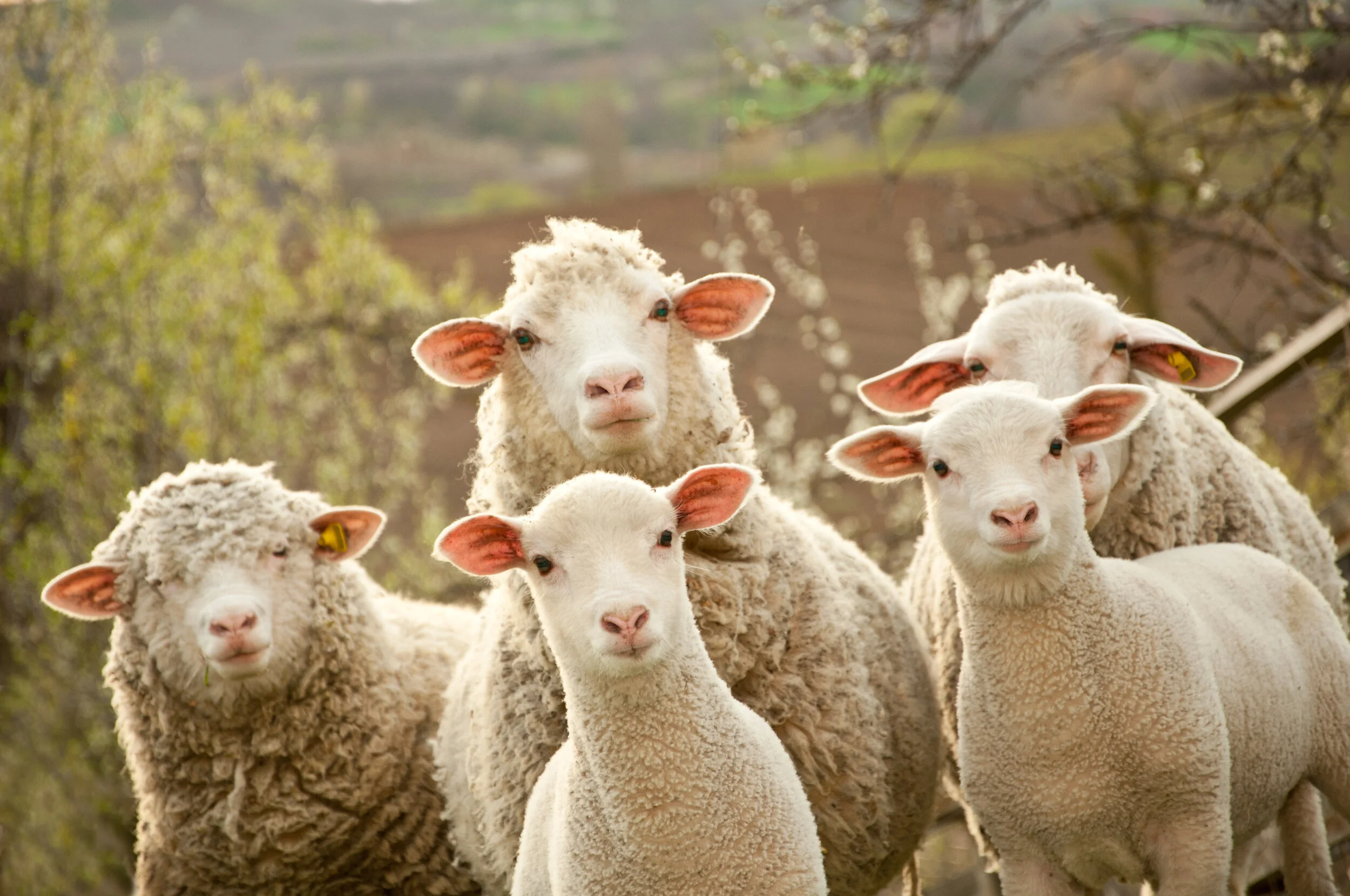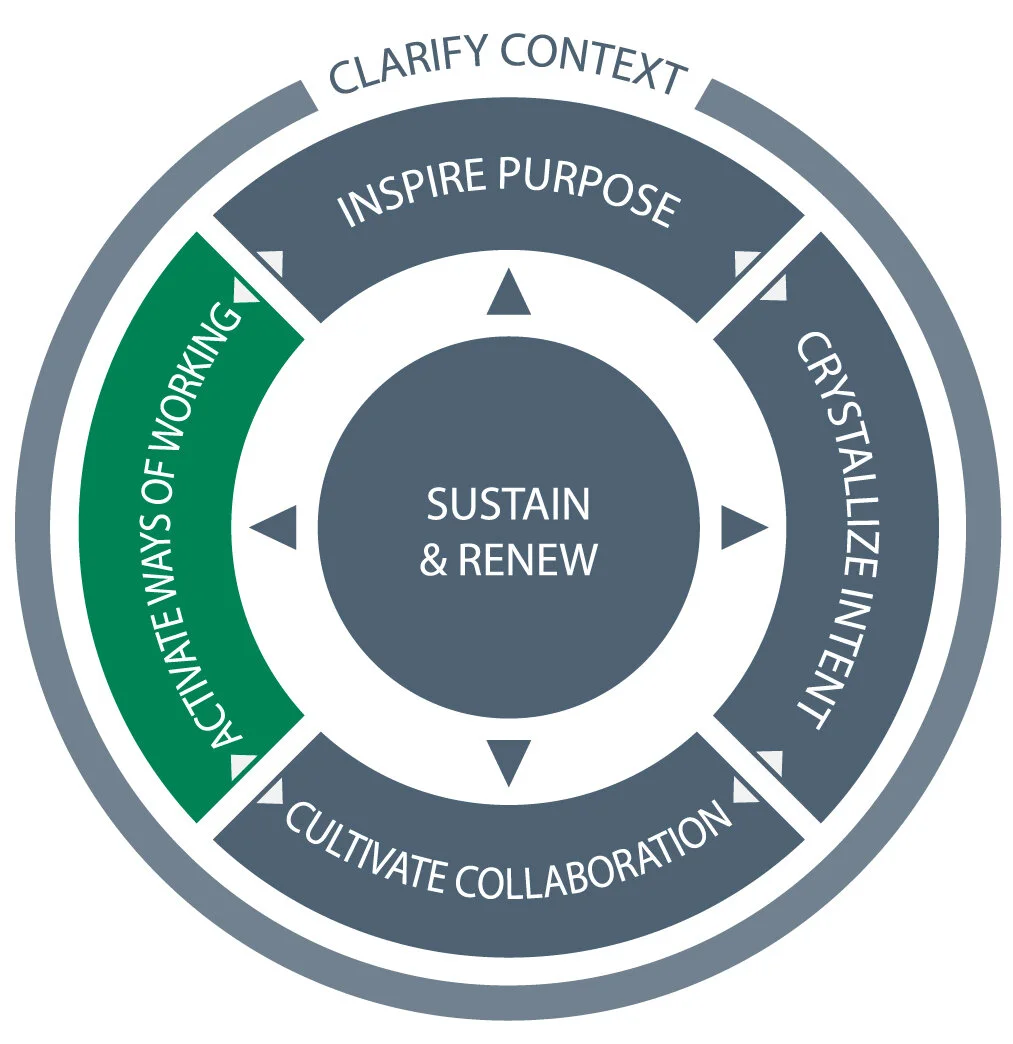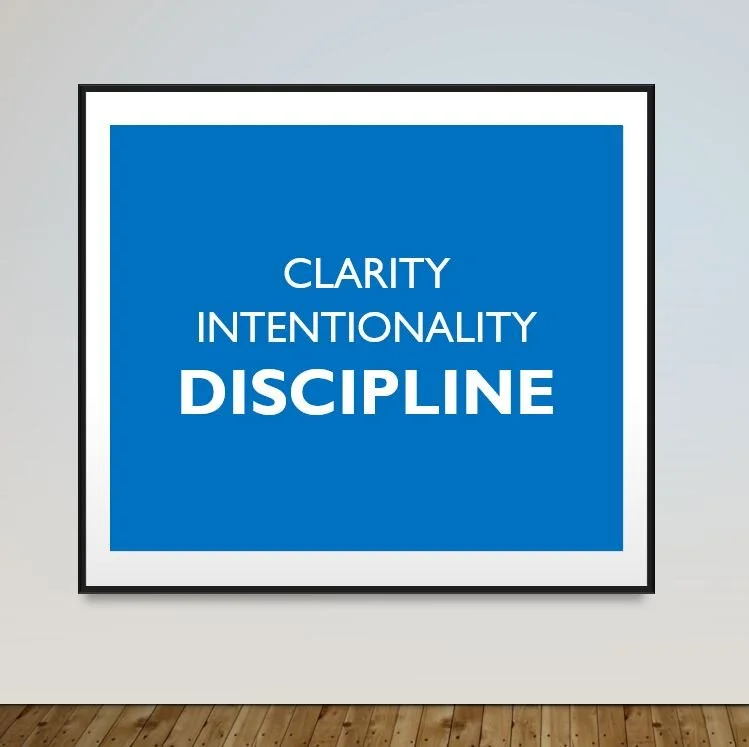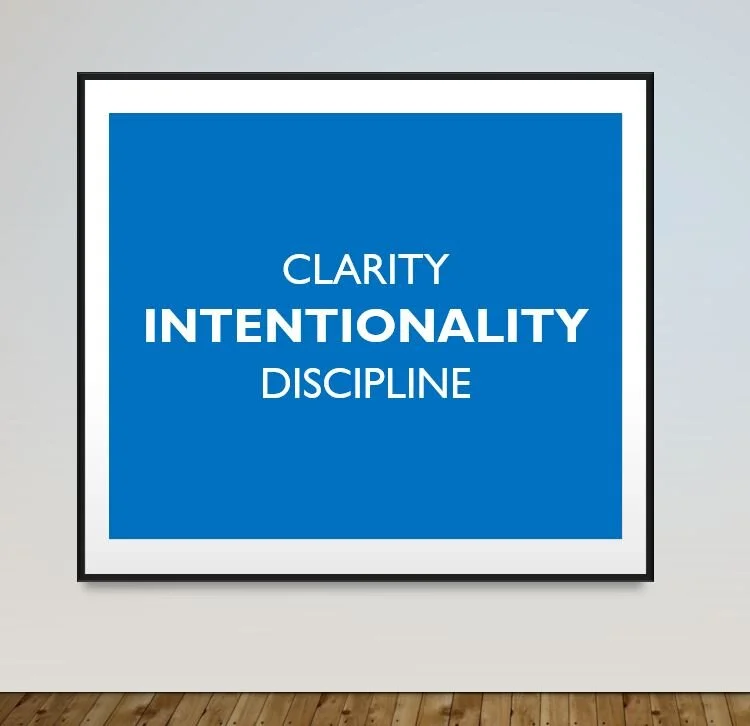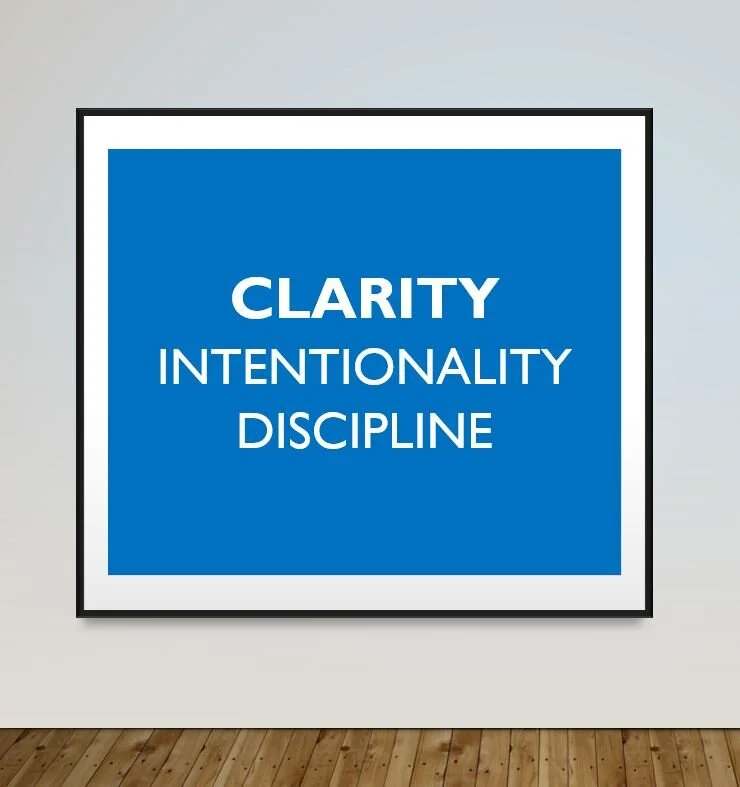Team greatness comes from regularly applying ideas, but It’s only sustained by teams learning to learn together. When a group finds its rhythm of learning, the payoff is massive. Work products and team dynamics improve. Relationships deepen. The bar of success is continually raised. A team spirit emerges that’s lasting and meaningful to everyone. That’s good news for the team as a whole, for each team member and for the organization.
Read MoreOrthodoxy means “right opinions.” It’s the conventional wisdom, the generally accepted knowledge applied without question or challenge. Why do people stick with the orthodoxy? Because it’s what they’re used to. Based on our research and experience, we’ve got a different and more effective approach. We’ve chosen to move away from the orthodoxy and instead move toward orthopraxy or “right practices.” We’ve created a specific set of six proven practices that groups can take on board to create consistently more effective collaboration.
Read MoreConventional team building events may be fun, scary, even interesting, but they don’t do much to change the ways people work together. Any benefits they do yield fade quickly in the face of the day-to-day pressures of work. But, when relationship building reinforces meaningful, shared work, it strengthens results and creates bonds that endure no matter our differences.
Read MoreThe key to irresistible collaboration is understanding which work requires collaboration, which doesn’t, and focusing your efforts accordingly. The time and energy you release through irresistible collaboration will be directed to getting more done, more effectively while increasing team member engagement.
Read MoreSome groups don’t do much work together because they don’t need much collaboration to succeed. Others, like the automotive design group, work together most of the time because if they don’t they won’t achieve their goals. Would you manage the highly independent sales team the same way you’d manage the highly interdependent car design team? Of course not. Know what sort of collaboration is required and tune your team development efforts to it.
Read MoreInstead of fostering teamwork, shared goals drive more individual effort. But where’s the collaboration? There isn’t any. Shared work, by contrast, focuses collaborative effort. Should they also share goals? Sure, that’s how they will know they achieve what they set out to do. But it is the specific work a team shares that ignites powerful collaborative behaviors.
Read MoreShared work must be as clear and compelling as people’s individual responsibilities. If you want collaboration from these achievement motivated folks, the pull has got to be irresistible. The teamwork you are proposing must be as clear and compelling as their individual tasks; it must tap into their deep-seated need for accomplishment. This is how great teams operate.
Read MoreIf teamwork is a reaction, it’s collaboration as an after-thought.. The most powerful collaboration is proactive and intentional. Great groups figure out in advance which work they must do together, they plan for and create the space for collaboration. They’re equally clear about which work is better done by individuals. They check in with each other and stay in front of the work.
Read MoreThe words, “team” and “teamwork” have become hollow jargon and overused hashtags. I call it “teaminess”, and a waste of money. Collaboration is the foundational element of all group work. Whether you call yourselves a team, a group, a community or a committee, what matters is knowing which work requires collaboration – and which doesn’t. Then it’s about getting the right people involved in the right ways. It’s simple, it’s practical and it makes genuine collaboration possible.
Read MoreTeam stages tell you little nowadays. We still base team development on theories from the 1950s and '60s. Those concepts made sense in their day but organizations and the world they operate in have moved on. It doesn’t matter when a team was formed or how much time they spend physically together: there’s work to be done and people must work together to do it. We’re ready to share a new, improved approach to teamwork with you and your organization.
Read MoreWhen we can connect with others around meaningful work and produce better results that we can all be proud of, that’s just good for everybody. That’s why I do this work, that’s why we need to start this quiet revolution. The invitation is open. Join me, won’t you?
Read MoreThere is a presumption that you have to build trust to create a great team. I see it differently. Trust is not a necessary precursor for effective teamwork. Trust is an outcome of people collaborating on meaningful work. Read this to find out more.
Read MoreThe key to this High Performance Collaboration framework is the insights and theories that lie behind it. The name of the Imperatives and Practices are just labels; we encourage you to adapt this Framework to your organization and culture.
Read MoreActivate ways-of-working is how you make sure your meetings are built around what matters to everyone on the team.
Every month or every quarter commit to stop, inquire, reflect and improve. Connect your learning sessions to specific areas that you want to enhance, even to specific on-going work that could benefit from the lessons learned. That’s the heart of Sustain & Renew as a discipline.
Read MoreYou come to this third Practice knowing why your collaboration matters, which work requires collaboration, and who should be doing it. Cultivate Collaboration is the payoff for all that work. It is about contracting, connecting individuals to the work of the team. Cultivate Collaboration is about creating more intentional collaboration. In fact, it’s the only Practice that is directly aligned to Intentionality.
Read More“TOGETHER WE ARE COURAGEOUS ARCHITECTS OF THE FUTURE OF PETCARE”.
This statement is not only inspirational and aspirational, it’s also practical. For example, if a topic didn’t deal with the future of the entire petcare segment, if it wouldn’t make a difference to what the segment might look like 5 or 10 years ahead, that topic wouldn’t make it onto their agenda.
Read More…As accurate as it was, descriptions of team needs weren’t going help people who just wanted to know what work had to get done, and how they ought to go about it. So, I wondered, “How could I augment Three Imperatives so we would have something teams could use to generate collaboration and teamwork?” They needed the actual Practices to . Allow me to describe the six practices and how they align with the three imperatives.
Read MoreThe world’s crazy enough. Whatever we can do within our teams to foster a sense of control, a sense of focus around the things that matter, will go a long way towards helping us meet the commitments we have made to each other and to our organizations.
Read MoreCollaborative accountability goes beyond the tasks people do together; it includes commitments for how they intend to work together, the behaviors they are signing up for. Intentionality is the ultimate virtue of superior teamwork.
Read MoreWithout clarity we waste time in meetings we don’t need to be part of, listening to stuff we don’t need to hear. What’s worth meeting about and engaging around? It’s that simple.
Read More

